HELP ENLIGHTEN YOUR FELLOWS. BE SURE TO PASS THIS ON. SURVIVAL DEPENDS ON IT.

Basij with former president Ahmadinejad
Allow me to give a summary of my conversations with well-meaning Westerners since at least 9/11.
Everyone: "Ramin, I'm so worried about Iran! I expect US troops to land in Tehran every time I turn on the news!"
Me: "The Basij."
Everyone: "Ramin, the US invaded Afghanistan and Iraq - Iran is obviously next!"
Me: "Yawn...the Basij."
Everyone: "Dubya Bush...no, wait - Barry Obama...no, wait - Trump…they are sure to invade and destroy Iran!"
Me: "So bored...I'd make a pun, but nothing in English rhymes with ‘Basij’!"
Everyone: "Ramin, why am I more worried about Iran than you?! You aren't taking this seriously!"
Me: "May I please tell you about a group called the Basij?"
And then I allay everyone's very kind fears for Iran, just like I'm going to do for you….
I'm sure that the few Western capitalist-imperialist analysts who have actually examined the Basij simply shudder when they find out what the Basij's full name translates to: "Organisation for the Mobilisation of the Oppressed”.
“What the heck…? There are 10-25 million people in this group?!”
"Oppressed" has obvious leftist connotations, and I'm sure Western readers will agree that there is absolutely no organisation with such a title and directive in their countries.
Nor one so very popular - the goal has always been to enroll half the country (men and women) in the Basij, in what is reminiscent of the American Revolutionary War ideal of citizen / soldier. Iran has 80 million people, so they have far to go, but I can report that their recruitment efforts are not flagging.
The Basij is a controversial group even inside Iran - there is a sort of love-hate relationship. However, as in all such relationships, the key word there is “love”: if you have just half of that, you have basically already been won over save for a few disputes. Hate-hate relationships - Iran with Zionism, for example - have no chance at reconciliation or compromise.
What’s certain is that during the Iran-Iraq War the Basij were loved for their defense of the country and their sacrifices, and they would be loved again if Iran were invaded tomorrow. Iran won’t be invaded though, because the invading country would lose terribly and overwhelmingly, and this 3-part sub-series on the structure, motivations and tangible realities of the Basij will prove why.
Writing about the Basij for the West is not done without risk on my part: surely there are people in the government who will applaud that I am trying to give an objective account of the Basij - it certainly seems to be the first such account in English. But there may be other Iranians who are not as thrilled that I have chosen such a subject.
This sub-series on the Basij is only to state facts & examine structures, and then to hold up well-known opinions and see how they hold up under such facts. I am not here to defend the Basij - only to explain it.
The Basij is a major force in Iran, but they are no mere “militia”: I will shock many by saying that their military power is dwarfed by their cultural, political and even their economic significance. This group has no parallel in Western society - the previous part in this series compared it with the Chinese Communist Party, another deeply misunderstood institution in another country subject to ignorant propaganda efforts.
Bottom line: If I can help end this misunderstanding, people will perhaps realize the difficulties any warring tribe would encounter upon invading Iran.
As far as I am concerned: The beauty of the Basij is in the eye of the beholder. I will maintain my jaundiced, objective, journalist’s view and keep my personal views to myself in order to reveal the true nature of the Basij in this sub-series, which should be an eye-opener for many.
What the heck is the Basij?
Nobody really knows outside Iran….
At the most fundamental level, the Basij is a mass organization which is dedicated to preserving the principles of the 1979 Islamic Revolution, to defend the Iranian People and to work for the success of Iran.
To say that they are “pro-government” is truly redundant or nonsensical: there is no modern country which has a group dedicated to destroying the government which enrolls 12-30% of the nation thanks to government support…and is still a nation. The only political certainly with the Basij is that they are “pro-Iranian political structure”, as I will soon show how their record is mixed regarding which political camp wins the executive or legislative branches.
Two million Basij fought in the Iran-Iraq War, but they are not a military organisation - this explains why when the war ended they were not disbanded, but expanded. They exist to guard the Revolution, serve the State, and serve the People, so they did not run out of work to do just because there was no more war. We now see that the Basij exists primarily as a domestic cultural institution, not a military one.
This fact means that the most important propaganda to wipe away is that the Basij is a "militia" or “paramilitary”. Only a very small percentage of the Basij are armed and involved in military / security operations, and by that I mean - they literally only serve at guard posts or as bodyguards for major public events.
Furthermore, "militia" and "paramilitary" are propaganda terms because the Basij is a pro-state organisation - militias and paramilitary groups are often not under state control, and often opposed to the state. Thus the Basij should be considered like the National Guard in the US or any other reserve force - totally under control of a democratic government. Yes, the Basij can be mobilised quickly in times of war, but in peacetime the Basij reverts to an active cultural and domestic role, unlike the National Guard.

Blackshirts with Mussolini marching on Rome in 1922. Nope, no similarity with the Basij.
Anyway, the Nazi Brownshirts were disbanded long before WWII, and the Italian Blackshirts melted upon invasion & only proved good for imperialist wars in Africa. [Some also fought in Spain and Russia, with middling to embarrassing results. The"Black Flames" (Fiamme Nere) (1), one of the "volunteer divisions" sent by Mussolini to help Franco, despite tactical and numerical superiority suffered a bad defeat in Guadalajara at the hands of the largely disorganised Republican army. In the USSR their record was much worse.—Eds] Because all three of these groups are mass organisations there are some similarities…but this is like saying that “the Conservative Timbuktu Party and the Antarctic Anarchist Party are the same” because they are both political parties. As I showed in the previous part, the Chinese Communist Party is the best comparison: both nations have had modern revolutions which deposed their undemocratic fascists, after all.
Again, the Basij cannot be compared to the anti-Semitic, xenophobic groups of Europe: Europe has a many centuries-old problem with racism, the Holocaust being merely the latest manifestation. Indeed, modern European Islamophobia - the idea that Islamic culture is inferior, negative & dangerous - is just the latest domestically-acceptable manifestation of this historical trend and reality. Iran, however, is the OPPOSITE of this because their 1979 revolution was openly anti-racist and anti-sectarian. Combined with the fact that Iran has not invaded a country in 300 years, I simply will not countenance the idea that the ideology in which the Basij are inculcated (described in the next part of this series) is similar to the racist, anti-Jewish, imperialist ideology of the 20th century European fascists. Case closed.
When we deny this fear-mongering, it paves the way for realising that the Basij is something totally new, which I term an "apolitical Islamic socialist union NGO".
An ‘apolitical Islamic socialist union NGO’ seems like a terrible definition
Well, the Basij is a unique (revolutionary) entity - you come up with something that rolls off the tongue!
If the Basij succeeds and its model is copied - like in, say, Venezuela - they will say, “It’s a Venezuelan Basij”, and not, “It’s an apolitical religious socialist union NGO” - I certainly agree there.
This is a novel definition, and while it’s not very catchy it does have the virtue of being accurate:
It is "apolitical" for the simple fact that Basij members have mostly voted for the mainstream Principlist (conservative) Party...and then mostly supported the mainstream Reformist Party...and then mostly supported Principlists again, and back and forth, etc. This is both for president and parliament. Therefore, Basij members do not support just one political party in Iran. One might assume Baisji are all conservative supporters, but their voting record clearly disproves that assumption. Because this is a mass organization whose only criteria is to support the principles and structures created by 1979, members are obviously drawn from all parts of society and all parts of the political spectrum. Above all, and very often openly and loudly, the Basij are devoted to the post of the Supreme Leader and say they follow his orders; this post was created to embody the moral, religious and political ideals of Iran and the 1979 Revolution. The Supreme Leader is not a mere, transitory “president”, and a good description of his primary political role is that of unifier of the different political camps - he also clearly unifies the Basiji, whatever their political camps are as well. This is why I call the Basij “apolitical”.
I think the word “Islamic” could easily be removed from this definition - there are Christians, Zoroastrians and others in the Basij, and not only Muslims. So if one means “Islamic” in the sense that one has to be Muslim to be in the Basij - this word is false. But if one means “Islamic” in the sense that the principles of Islam guide the Basij, then this word is correct. Much like the “Iranian Islamic Socialism” which guides the country, the Basij is expressly “Iranian” first and “Islamic” second.
It is "socialist" due to its obvious goal of empowering the “oppressed” class, for the redistributive & decidedly anti-capitalist policies of the many Basij economic ventures, and for its clear role in uplifting the lower classes via direct political and social aid. I will explain this in detail throughout this sub-series, and the correctness of using this term will certainly not be doubted afterwards.
They are a "union" because they are mass organisation drawn from every class and sector of society, and one which is undeniably working towards political, economic and social ends in union with each other. Some call them a "party", but they do not function like one in the modern sense: most Western political party members are indoctrinated and will vote in almost perfectly predictable ways - as a "political machine" the Basij repeatedly does not vote as stereotypes predict. A "union", however comprises voters of different political persuasions who are united by a common job, interest, experience and needs, with economics playing a key motivation. So a “union” and not a “party” is accurate.
They are an "NGO", which is the official government designation and a popular one as well, because they are overwhelmingly unpaid civilian volunteers. This is a crucial distinction, and why "NGO" cannot be left out - these people are giving their time and energy in large part because they love what they do, like any unpaid supporter of any NGO. Earthquake relief, planting trees, policing the internet, and all that civil service stuff that activists typically do - that’s truly the main role of the Basij.
So it’s not pretty, but “apolitical Islamic socialist union NGO” is accurate. But it has evolved into something huge.
The Basij: Too big (and too revolutionary) to grasp, and way too big to invade
[dropcap]W[/dropcap]hy has nobody studied the Basij when it is such a huge peacetime organization of such voting, political, economic and cultural importance?
My answer is this: It is too intimidating and revolutionary to be grasped, for non-Iranians:
- a 17-million person organisation, and growing
- mostly joined by the lower class
- a 40-year old organisation, meaning it is durable, tested and rooted
- embedded in the civil service and political class (President Ahmadinejad was a Basiji)
- supported by government laws to create economic and social advantages for members
- supported by so-called “privatisation” (explained in Part 3 here) and central planning which have created massive economic networks and jobs for Basiji
- only criteria is to be 100% pro-Iranian Islamic Revolution
- is primarily a grassroots cultural group drawn from all levels of society
- is a group which is half youth and 1/3rd female
- all receive basic military training
- physically present in every neighbourhood via Basij “resistance bases”, which are deeply involved in community life
- 60,000-80,000 resistance bases nationwide with roughly 100 members in each base
- 3-4 million “active” members who spend at least 6 hours per week at their base
- members join willingly, proving its enormous appeal
This is obviously a huge, huge, HUGE grassroots phenomenon in Iran, no?
Those figures I have given are the midpoint between government and non-governmental estimates. Beyond the members, how many people are not in the Basij but are supporters of it? I am referring to the spouses, family members and friends of Basij - they are not Basiji, but it’s reasonable to assume a feeling ranging from tolerance to outright encouragement in a large percentage of cases. 25 million Basiji supporters appears to be a low estimate.
It certainly appears to contradict the idea that the support for the 1979 Revolution is flagging. Why are all these people volunteering for it, then? They do get benefits, and I will relate those later, but some 17 million people didn’t join for solely opportunistic reasons.
This is the key point of this article: Any force which seeks to drastically disrupt Iran within Iran will have to contend with the organized, trained, patriotic Basij…and because I know this, and because the most nefarious plotters in the Pentagon, Paris, London & Tel Aviv surely know this…I am totally unconcerned about foreign invasion.
Iran had that - it was in 1980. The aggressive and Western-backed Iraq lost in the War of Sacred Defense (as the war is called in Iran). It can’t happen again - Iran has prepared for that, and their plan is called “the Basij".
Bombs alone simply don’t work - ground forces must always hold key areas, after all. The US bombed and chemically-weaponed North Korea and Vietnam to the Stone Age, but it was no matter in the end because they couldn’t hold the land. War has not changed THAT fundamental reality and never will. What good is nuking a foreign country when you can’t occupy the land and reap its fruits – a war machine makes no profit that way? All the West can do is commit massacres - like in Vietnam and Korea - but they cannot invade and hold: American colonialism is over.In a completely objective view of the Basij: anyone who gets through the Iranian army and the Revolutionary Guards then has to go through the Basij. Street to street, house to house, cave to cave, cactus to cactus - a Basiji will be there, just like the Vietcong. They’ll call him “Ali in the black pyjamas” - take him on and it will certainly be your funeral, imperialist war pigs.
This is not to vaunt Iran as special – the USSR, Vietnam, Korea and other durably-rooted socialist-inspired nations have also repelled invaders.
Therefore: of course the Western media doesn’t want to talk about the Basij - it makes “War on Iran” a suicide mission which nobody would support despite massive Western jingoism.
That is the overview of the Basij and how they affect non-Iranians.
Digging deeper provides fascinating insights. However, not too many people have done this - objectively - outside of Iran.
Replacing 'zero scholarship' on Iran's Basij with 'bad scholarship'
[dropcap]G[/dropcap]iven the near-total lack of information, I want to remain objective about the Basij so that readers can decide for themselves. I don’t want to give my personal thoughts and experiences. I’d like to state that I am not in the Basij (though there is a Basij Journalists Guild).
That is why I am glad there is one (but only one) book on the Basij available in the West. This sub-series will analyse this book’s analysis, and it frees me from having present the Basij all on my own and be subject to accusations of bias.
 The book is “Captive Society: The Basij Miltia and Social Control in Iran: ” by Saeid Golkar. Golkar has been raised, educated and even taught in Iran. This book is his PhD thesis for New York City’s Columbia University.
The book is “Captive Society: The Basij Miltia and Social Control in Iran: ” by Saeid Golkar. Golkar has been raised, educated and even taught in Iran. This book is his PhD thesis for New York City’s Columbia University.
This is what Golkar's book is very good for: He has provided the Western world with the first-ever massive data dump on the Basij. The next two parts of this series will rely heavily on his exhaustive research into the Basij, conversations with Basij members and reading of all types of literature - domestic and foreign - on the Basij.
However, his analysis of said data…
Well, of course it is coloured by his political views, as social data always must be. This is not mathematical or astronomical data - “political science” is not a science at all.
I think the title already makes it abundantly clear: this is the first book about the Basij, but it is also the first book against the Basij.
Just like my recent series this year on China (Old vs. new scholarship on the continent of China: an 8-part series), which exposed the reactionary, anti-socialist views of ”the West's doyen on China" - John King Fairbank, Harvard's first-ever China scholar - both Fairbank and Golkar are only good for providing data. Their research - but not their conclusions - can be used to provide more accurate answers about China and Iran, respectively…when more modern & democratic political ideas are applied. They are both very much like medieval astronomers who carefully watched the stars and logged their data, but insisted on retrofitting their answers to the preconceived notion that the sun moves around the earth, or that the planets must travel in perfect circles instead of oblong ellipses.

Golkar
I don’t want to condemn Golkar because there are people in Iran who do not support the Basij, but few Iranians I know view them in such an unfairly one-sided manner. His reviews in Iran, however, have not been as lenient - Basiji websites call the book “insulting to Basiji” and “Iranophobic”. Considering that they already know much of the data he has provided, and that he refused to include even a single positive trait or anecdote of the Basij, I can certainly understand why they don’t view the book as useful – they already know how the group works, of course.
I’m trying to remain objective: his book provides data, and that is necessary for the West. All I can do is examine the data from my own perspective, and then try to remove that bias as much as possible; but Golkar did not do this, I believe. He routinely omitted any positive views, opinions, analyses and facts regarding the Basij, and that is bad scholarship.
Naturally, I tried to find out a bit more about Golkar to discover his political-ideological tendencies. Golkar retweets Francis Fukuyama, who famously declared the “End of History” upon the fall of the USSR with the capitalist-liberal West European model to reign supreme forever, to the great consternation of leftists and the great delight of right-wingers. Golkar is mostly interviewed in the West by Gareth Smyth, a journalist mostly affiliated with The Financial Times and The Guardian (the only Western review of the book is by Smyth in the Guardian). These media are neoliberal-capitalist and 100% anti-socialist, so Golkar likely has an affinity with these views; or perhaps Golkar is just happy to be interviewed by anybody on his favorite subject (and as a journalist I understand that). However, as a journalist, I know that I will be called to Judgment Day before I get a call from either of those two media, because I am not capitalist or imperialist. Golkar appears to be trying to make a name for himself with that part of the Iranian diaspora which is totally opposed to the Islamic Republic of Iran - he is definitely not trying to get invited to speak at Basiji events, LOL! Considering how big the Basij is in Iran, Golkar is not trying to get invited to many places in Iran, period, it seems….
I'm going to start at the end, with the very final paragraph of the book’s conclusion: the final paragraph should sum up and reveal what Golkar’s true feelings for the Basij are, what his motivation for writing the book was, and what are his personal ideological & political aims.
“With the expansion of the Basij's involvement in Iran's social, political, and economic life, the opportunity for the country’s peaceful transition to democracy will decrease dramatically. Because many Basij commanders and members have been co-opted by the IRI, it is not implausible to think that they will resist any serious attempts at government reform that would jeopardize their positions.”
Undoubtedly, this states that Iran is not a democracy, as Golkar says they need to “transition” to it. I find that to be inaccurate and rather indicative of a negative view of Iran. The final sentence implies that Basij commanders and members are opportunists or dupes, which is also rather negative.
Now perhaps I am reading too much into it, but there appears to be a complete sentence which has been hidden:
“With the expansion of the Basij's involvement in Iran's social, political, and economic life, the opportunity for the country’s peaceful transition to democracy will decrease dramatically. Because many Basij commanders and members have been co-opted by the IRI, it is not implausible to think that they will resist any serious attempts at government reform that would jeopardize their positions.”
In condensed form: With the expansion of the Basij the opportunity for transition will decrease dramatically, because many Basij commanders and members will resist any serious attempts.
This talk of a “peaceful transition to democracy” is very reminiscent of the coded language used for an armed attack to destroy Iran’s political structure, as it was for the Western "humanitarian interventions" like in Yugoslavia or Libya in order to bring “democracy”. Certainly, Golkar seems to begrudge the Basij their ability to “resist” changes of his preference.
Golkar also indicates what I have already stated: the Basij is now a permanent, embedded feature of Iranian society which will certainly “resist” a great many things.
Is my “hidden sentence” paranoia?
Well, his final chapter is titled, "Basij Members - Islamic Warriors or Religious Thugs?” Uhhh…this would be expected in an American imperialist's or Zionist's view of the Basij, as both are stupid stereotypes and not scholarship.
More mildly, but still negatively, half of all chapter & part titles contain the words “control”, “repression” or “suppression” - these are all quite loaded terms, I think we’ll all agree.
I have actually read the entire book, and it is my opinion that such clear bias is why this book is “about” the Basij, but also “against” the Basij…and that is bad scholarship. The Basij have their detractors in Iran, but from start to finish Golkar's book evinces an undisguised and unadulterated antipathy for them.
Very surprisingly, he certainly refuses to admit the possibility of even a drop of possible ideological sincerity on the part of members, which seems extreme. It is as if the Iranian Golkar doesn’t know any devoted Basiji, or that he has never seen a Basiji be helpful? In his insistence to present all Basiji as mere opportunists, he is certainly giving Western readers the false idea that this group will entirely melt away when confronted with domestic or foreign violence. Some will, sure, but some definitely will not because some do have ideological sincerity, to put it objectively.
Also, the book is devoid of even a single reference to the class struggle, Marxist economics & the People-centered ideals of socialist democracy. Iranian Revolutionary Shi’ism, truly the ideology of the revolution, contained ideas, principles, structures and slogans from all these sources. Golkar could have said, “the Basij fails in all of these socialist-inspired areas”, but he does not even broach these concepts as being important alternative lenses to view the Basij through. This makes me think that not only does Golkar not like the Basij, but he does not want to promote the ideals of 1979 in any way, nor does he want to promote socialist ideals either.
Golkar has done plenty of research - in Iran, talking to Basij members, reading Basij literature, finding the obscure Western journal articles on the Basij - and his extensive bibliography is a testament to that. It is the vast bibliography of a top university-level work, which it is.
But a big bibliography should never be enough to satisfy, because a big bibliography cannot make - to give an example - an inherently reactionary & capitalist view not reactionary or anti-democratic. Technocratism can never be allowed to govern, only to advise with data - everyone living in the Eurozone in 2018 should be well aware of the social chaos that results from putting people into power on the basis of their "technical qualifications" instead of their ideological-philosophical-ethical views.
And so I will not be browbeaten into accepting Gokar’s "authority" just because he has provided the trail of his ideological investigation into the Basij. Ideology counts. Fairness counts, too, and this book is so devoid of the Basij’s positives one is left wondering if 10-25 million Iranians are capable of knowing right from wrong, which is an absurdity.
But the book should be read because...well, it's the only game in town. There is NO other book in English or French on the Basij.
I now return to Golkar's very first paragraph in his preface. This paragraph is when the author primes the pump for what the reader is about to receive, setting the tone for the entire book.
"Although the organization has millions of members (known as Basiji) and pervades all aspects of Iranian society, there are only a few scholarly works on the subject and even fewer available in English. With the expansion of the Basij across society and its increasing power inside of the Islamic Republic of Iran (IRI), it has become essential to study the Basij and its role in controlling Iranian society, which have led to the persistence of the IRI in post-revolutionary Iran.” (emphasis added)
I have made the same point and have the same goal: understanding 2018 Iran is impossible without awareness of the Basij.
But Golkar shows his bias / ideology / philosophy / political view when he says we should study the Basij to see "its role in controlling Iranian society" - that is a fundamentally unsympathetic, negative view, and we must realize that this antipathy towards the Basij is the ideological principle he will use to guide his readers. My goal is simply to unveil the Basij for Western readers - you can say if the Basij is beautiful or ugly; this should have been Golkar’s goal, and the goal of Columbia University, which supported this work.
I, too, have pointed and will point to the Basij as a force which has "led to the persistence of the IRI in post-revolutionary Iran" …but I think Golkar's implication is clear - he is not pleased that the Basij has helped in the IRI’s “persistence”. This is his right as a person, but as a scholar…well, I guess it’s also his right to be completely biased - no law against it, after all.
As this article is a book review, I include this judgment about it: this is a book about Iran, but it is not very sympathetic to a huge number of Iranians. I fundamentally dislike books like that - how can my own humanity be increased with such a view? Is my humanity to be increased by learning to fear and hate the Basij? Golkar may not like the Basij, but he should have at least given their point of view for why so many support it - it is not as if we are talking about a handful of outsiders, after all. This was the bare minimum of fairness - it was discarded. That is my impression and that was his choice.
But Golkar does not own data. Therefore, in between his conclusion and his preface Golkar and I certainly battled it out in the fight for accuracy, which has always been my primary journalistic watchword (over “objectivity”).
I’d like to finish by returning to the headline of this part - the reason why the Basij makes foreign invasion and also “civil war” impossible. There are two simple, overwhelming reasons why the Basij prevent civil war:
Second: This lack of clear divisions and the obvious omnipresence of the Basij means the division is not physical, but ideological: The Basij are an idea which is impossible to eradicate, after 40 years. Thus the question will always be one of democratic balance, compromise and negotiation - an unblissful but peaceful coexistence, perhaps.
The next two parts in this series will describe the unique structure of the Basij, its legal & cultural roles, its unique goals, and its exceptional influence on Iranian society.
Armed with all the facts, readers can then judge for themselves the merits, or not, of the Basij.
***********************************
This is the 5th article in an 11-part series which explains the economics, history, religion and culture of Iran’s Revolutionary Shi’ism, which produced modern Iranian Islamic Socialism.
Here is the list of articles slated to be published, and I hope you will find them useful in your leftist struggle!
The WSWS, Iran’s economy, the Basij & Revolutionary Shi’ism: an 11-part series
How Iran Got Economically Socialist, and then Islamic Socialist
What privatisation in Iran? or Definitely not THAT privatisation
Parallels between Iran’s Basij and the Chinese Communist Party
Iran's Basij: The reason why land or civil war inside Iran is impossible
A leftist analysis of Iran's Basij - likely the first ever in the West
Iran's Basij: Restructuring society and/or class warfare
‘Cultural’ & ‘Permanent Revolution' in Revolutionary Shi’ism & Iranian Islamic Socialism
'Martyrdom and Martyrdom' & martyrdom, and the Basij
‘The Death of Yazdgerd’: The greatest political movie ever explains Iran’s revolution (available with English subtitles for free on Youtube here)
Iran détente after Trump's JCPOA pull out? We can wait 2 more years, or 6, or…
(1) The Blackshirts (camicie nere) formal name was Milizia Volontaria per la Sicurezza Nazionale (MVSN, "Voluntary Militia for National Security").
About the author
RAMIN MAZAHERI, Senior Correspondent & Contributing Editor, Dispatch from Paris • Mazaheri is the chief correspondent in Paris for Press TV and has lived in France since 2009. He has been a daily newspaper reporter in the US, and has reported from Iran, Cuba, Egypt, Tunisia, South Korea and elsewhere. His work has appeared in various journals, magazines and websites, as well as on radio and television.

[premium_newsticker id=”211406″]



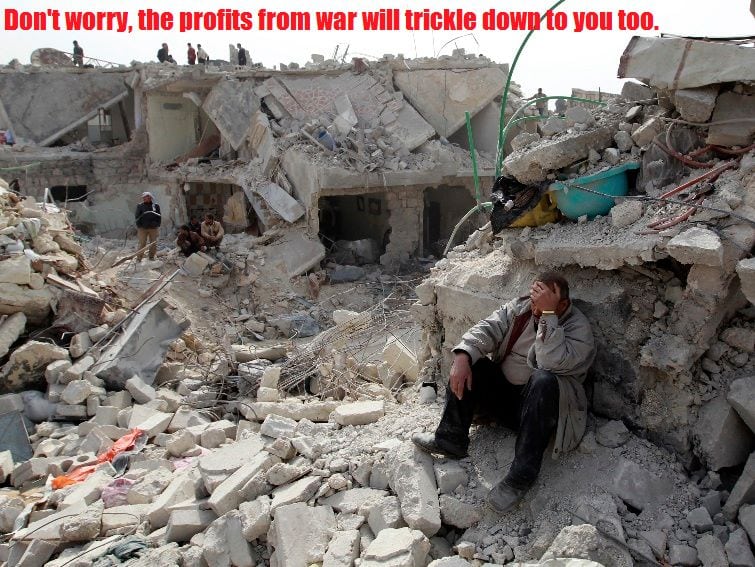
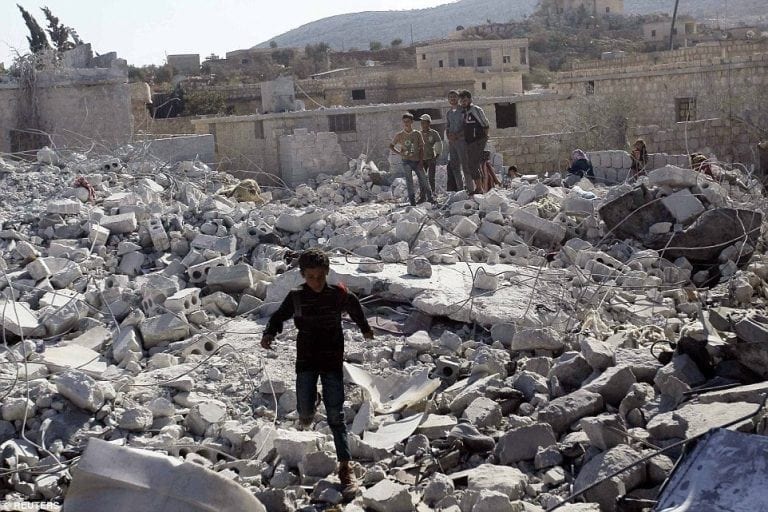


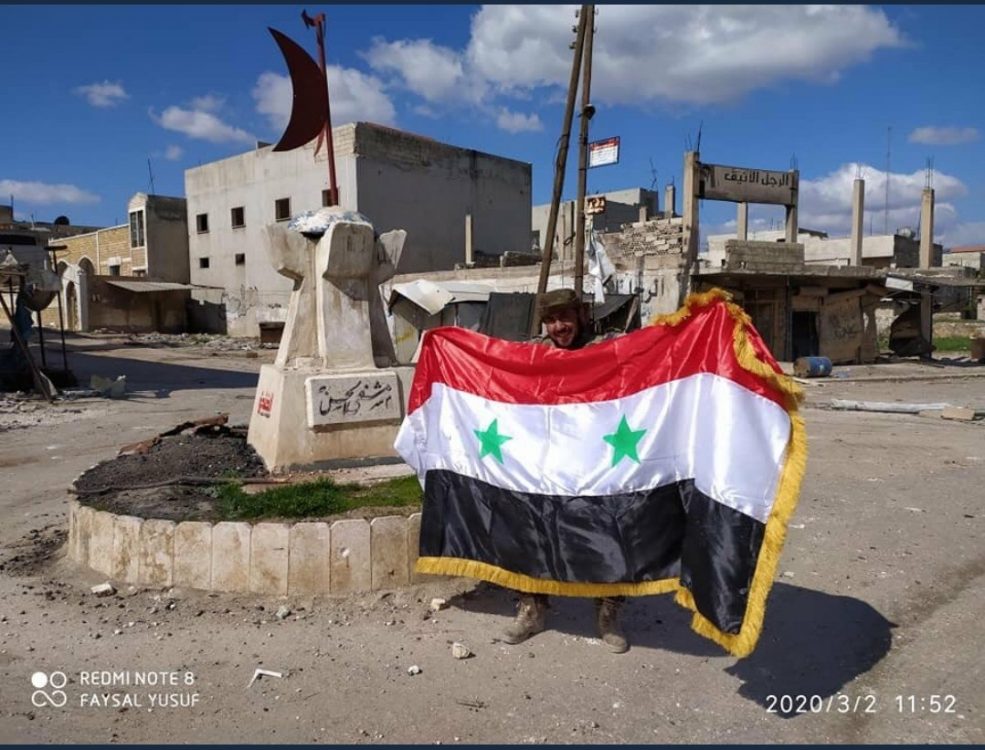

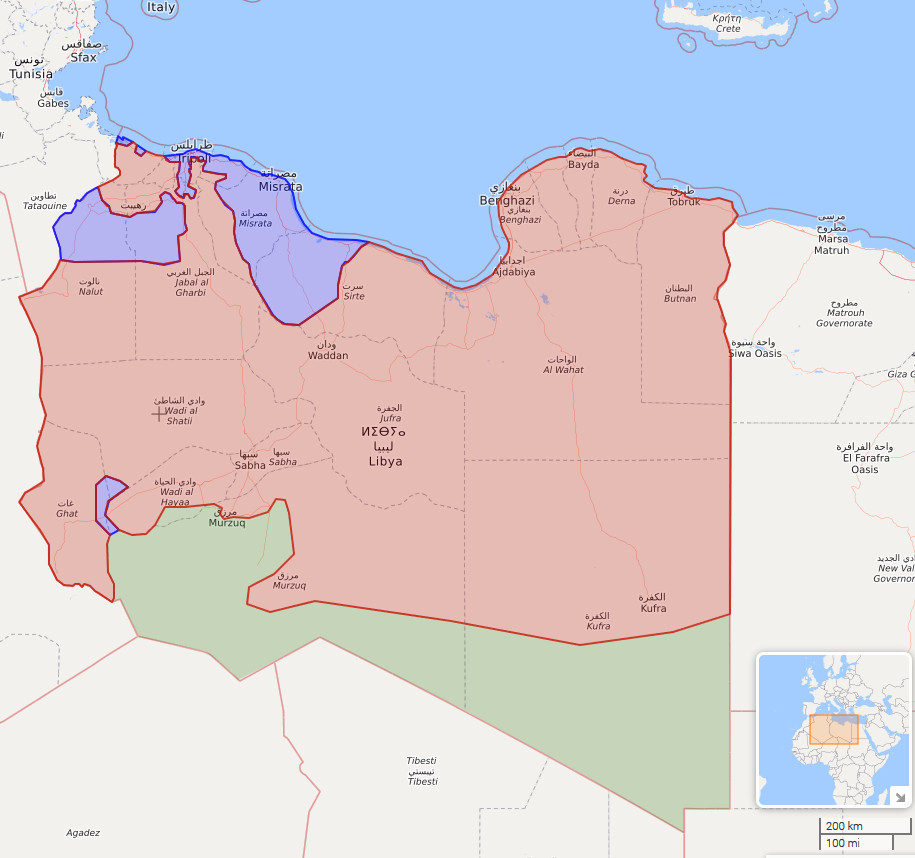
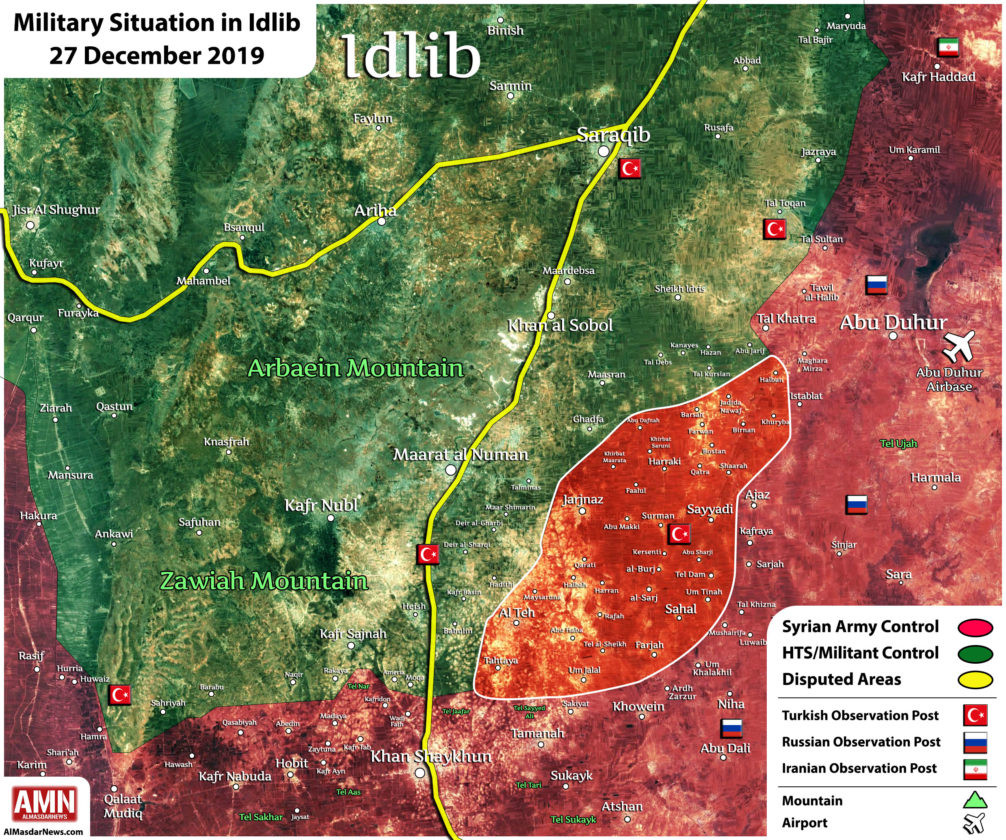
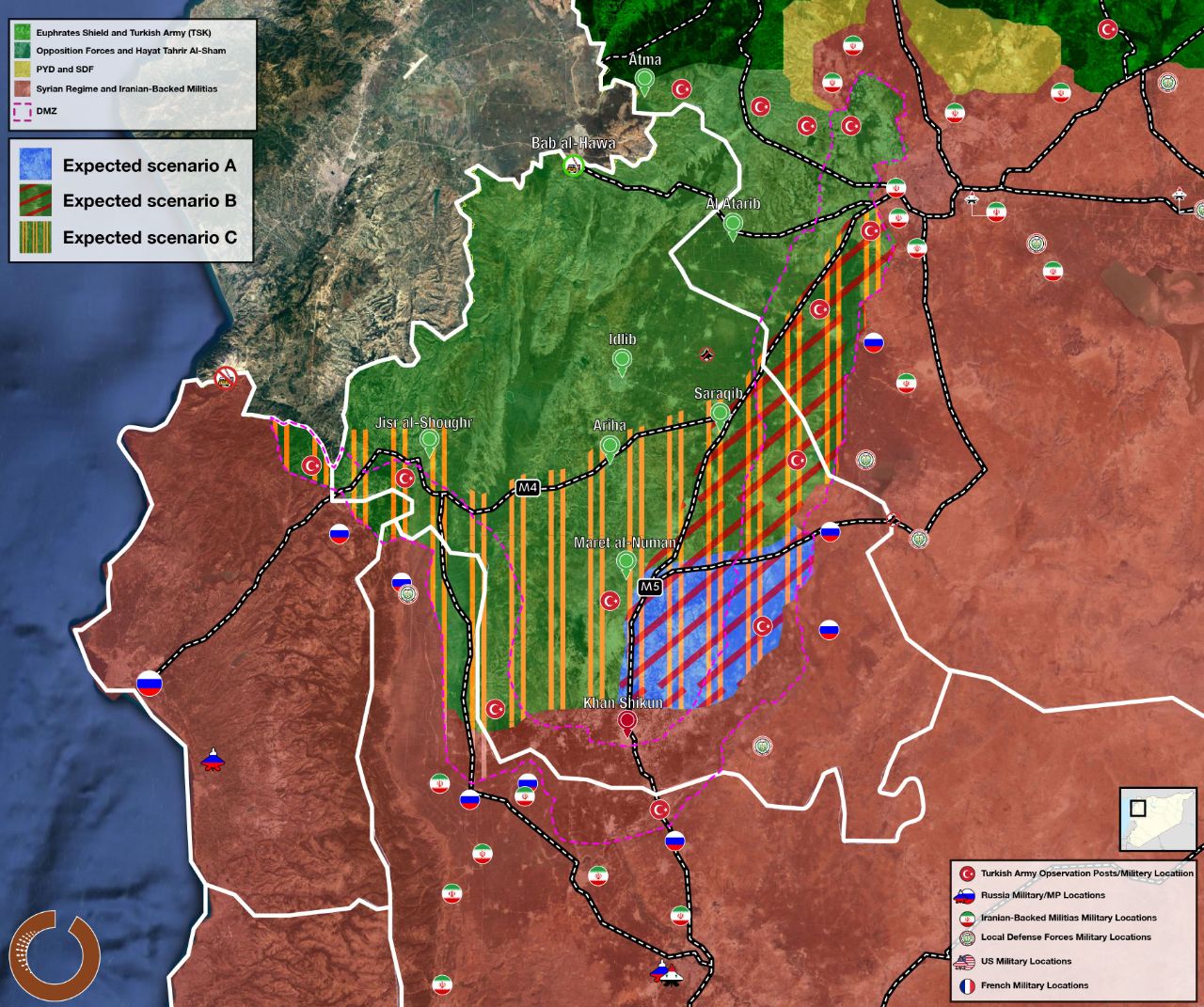











Thanks b hope you are correct "Makhlouf, the richest man in Syria and owner of Syriatel and lots of other companies" out of the pic... it remind me of Indonesia's Suharto mister 10%
Posted by: JC | May 7 2020 17:53 utc | 1